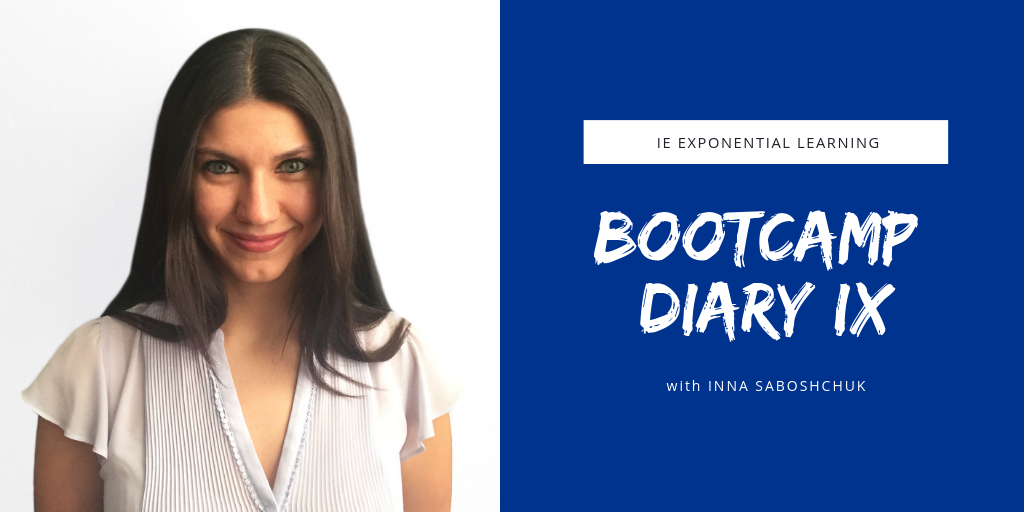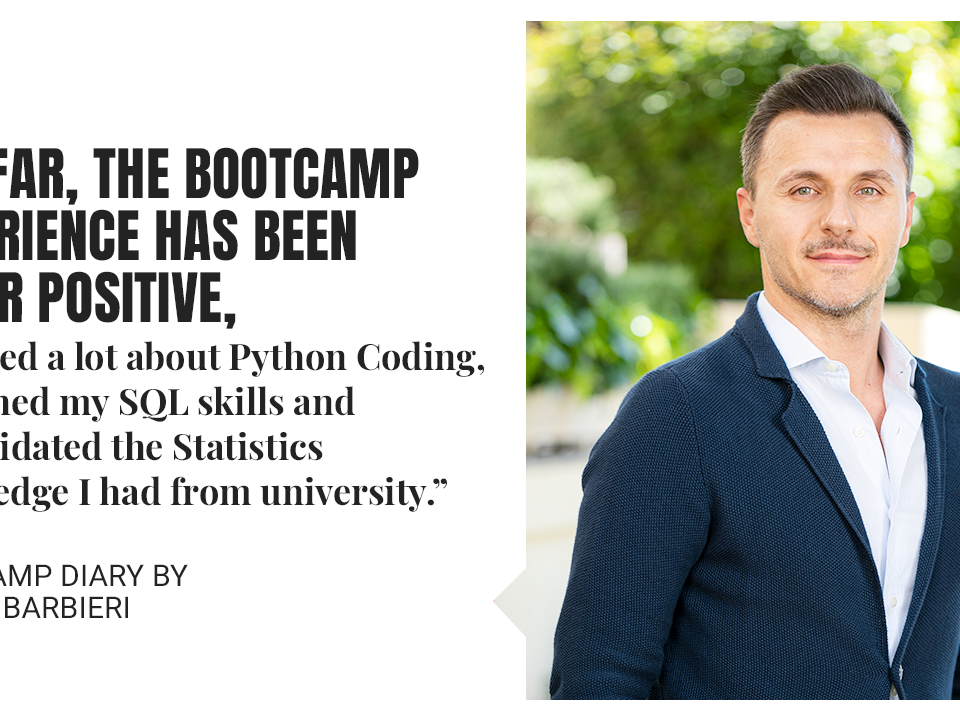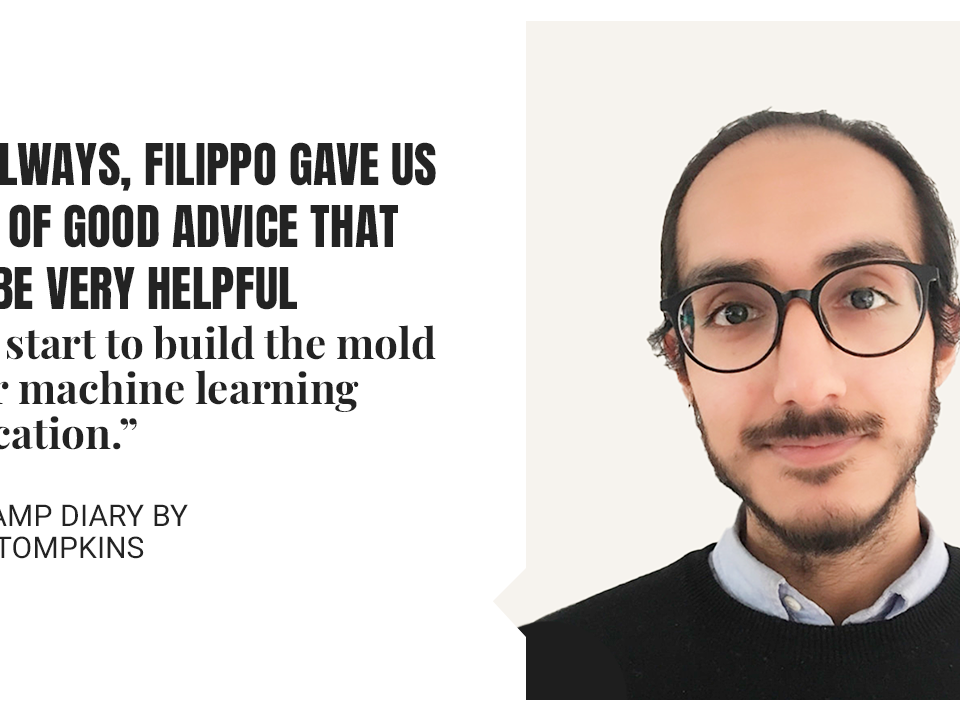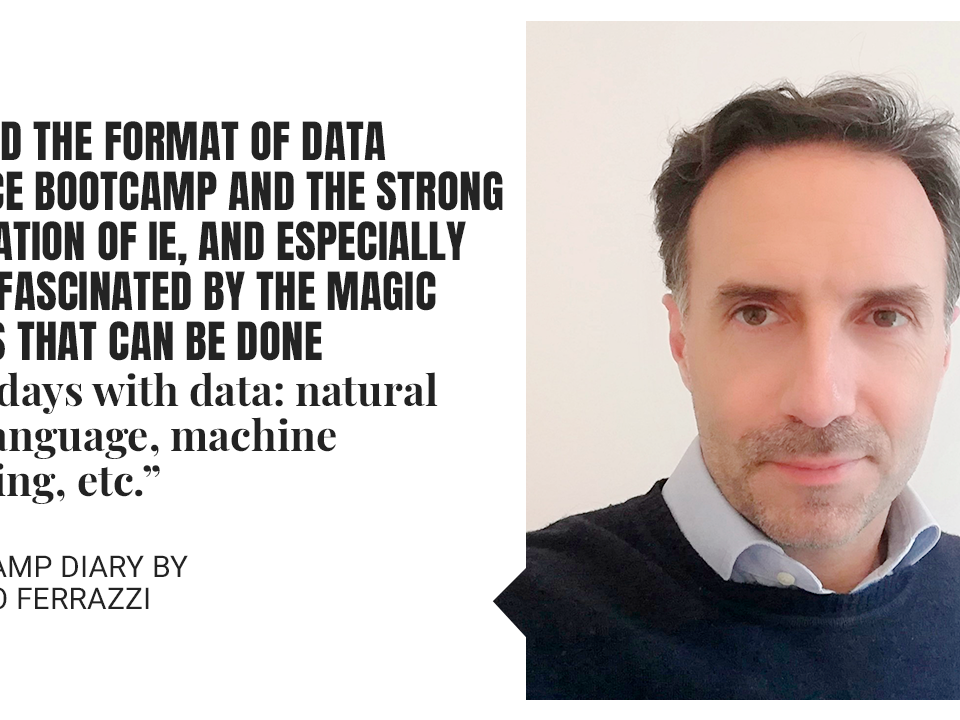R coding and Python by Inna Saboshchuk

After just two weeks, I feel like I understand the code and am capable of solving complex problems. In our R coding class we have already covered base R coding and now we’re learning how to work with datasets through tidyverse and other packages that R coding offers. It is very interesting to see how you could perform the same functions in many different ways, and we’re already focusing on optimizing our code rather than just figuring out any way to solve a problem.
The pace of the bootcamp is truly impressive. I have a doctoral degree in social psychology and a masters in biostatistics. I’ve done quite a bit of data analysis but mostly using SPSS and SAS. Any time that I used R coding, the majority of the time I was copying and pasting code and changing around some of the variable names.
As our first two weeks of the bootcamp come to a close, my fellow bootcampers and I are excited to start our capstone projects. Last night, we were split into four groups and introduced to our mentors from Nielsen, Iberia, Indra and Amadeus. We’re going to be working with large, messy data sets and all of the mentors emphasized that our tasks would be challenging. Personally, I’m very excited to see the data and start working with it. At the start of the bootcamp I probably would have been more intimidated by the project, but we learn so much so quickly that I’m eagerly awaiting to see what we’ll be capable of by the end of next week!
The other really fun part of learning to code is seeing how you can perform similar functions in R coding and Python. Once you see the same type of problem solved using both programming languages, you can decide which version suits you best. There is a lot of room for creativity within programming!
In addition to the 9+ hours we have of class from Monday to Friday, most of us stay longer to practice what we have learned during the day and help each other work out any issues that we might be having. This process helps us see other coding strategies, and pick up different ways to code more quickly and efficiently. Of course, the other big advantage of these after class sessions is getting to spend time with other people who are eager to learn about data science!
The other bootcampers help make the program a more enriching experience. Since we spend so much time together and there are only 15 of us, we’re getting to know each other pretty well. We are diverse both professionally and ethnically, coming from Romania, Greece, the United Kingdom, France, Portugal, Guatemala, Venezuela, Ecuador, the United States, Spain, Lebanon, Saudi Arabia, the Dominican Republic, and India with backgrounds in finance, academia, economics, engineering, IT, business analytics, hospitality and more.
Last night, we went out to celebrate the completion of two successful weeks and we were all in a good mood because we’re so excited about what’s to come. We´ve already set up a WhatsApp group in which we share resources, help each other solve problems, and of course make plans for the occasional beer. The bootcamp is very collaborative and everyone is ready and willing to help and share information. I feel very lucky to be around such an awesome group of people in an intellectually enriching environment. Joining the bootcamp was definitely an excellent decision.



